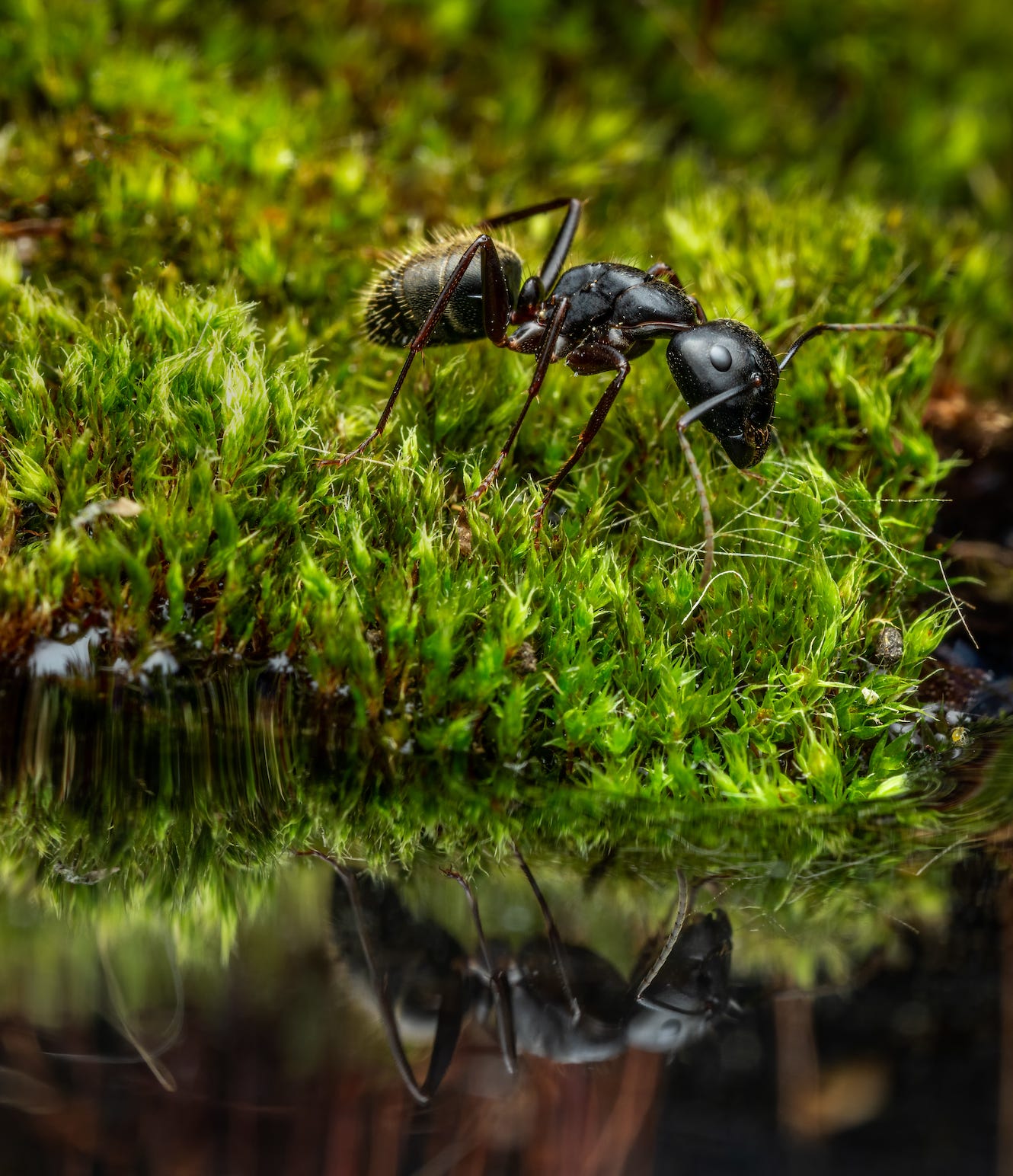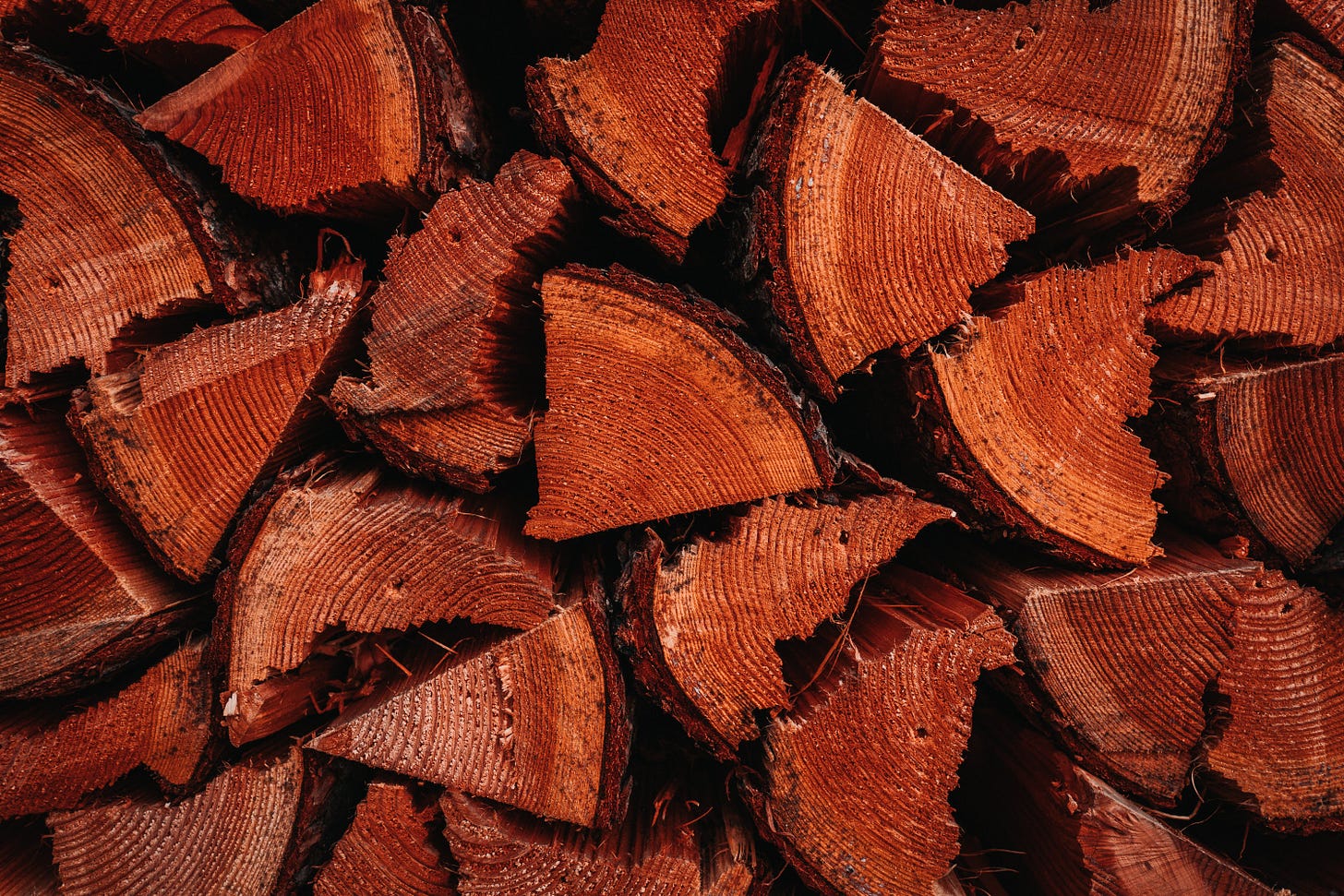CHAPTER 28: Trees Falling
Tom studied the other patients in the waiting room while he and his wife Sara waited to see the doctor. Most were old, sickly; many wore pandemic masks. Tom sighed. Not long ago he was healthy as a horse, full of vigor. Now he was drained of energy and faced a life disabled with diminished earning capacity and a strained marriage.
I can’t touch my wife and son with two hands, can’t work wood anymore and insurance is fighting over the payout, he thought. Can things get any worse?
Tom leaned his head back against the wall and the memories of that day, in the richly timbered valley on the north side of Hunger Mountain, swirled in his mind.
Hunger Mountain, he thought. Dark and cold and wet.
Tom closed his eyes and saw tall trees standing silent and majestic in the cold morning fog. Gray squirrels, jet-black ravens, sky-blue jays, all the creatures were looking for bugs and seeds to quiet their hunger. Beams of sunlight streamed through the moist, emerald branches of the conifer stand, flowing downward like yellow ribbons touching the quiet, deep purple shadows below.
Heavy trucks rumbled in the distance and the animals, feeling the ground shake, took cover. The vehicles parked at the edge of the forest, and disgorged men and equipment, noise and mud. The animals fled.
Silently, in Tom’s memory, the men unfolded their maps and checked which trees were selected to fall today. Soon the growl of chainsaws reverberated in the chill air. They found their targets, noting the lean of each, checking the direction and velocity of the wind, plotting an unobstructed course for the journey downward to a soft landing. The saws sliced cleanly through the base of each tree and sap oozed and shimmered in the early morning light.
Wrapped in their brown and green garments of bark and fir, the trees swayed gently while the men, like surgeons, severed them from their roots. Finally, all hope of regaining balance lost, gravity pulled them to earth. One after another, the giants fell. Slowly at first, branches whistling and grasping at the air as their plunge gathered speed. They landed far, far below, and bounced and shook before settling peacefully on soft dark beds of moss and sword ferns.
The men moved methodically, with an economy of effort and the drone of chainsaws continued, broken only by the whoosh and fall of timber. The ground shook as each behemoth fell, bounced and settled onto its green bed far below. The opening in the forest grew. Soil that had not felt the sun for decades warmed.
Standing at the severed butt of a tree, Tom mopped his brow and felt satisfaction at the progress made. He breathed deeply and relished the primal aroma of sweat and sawdust.
Tom found his next tree, revved his saw and sliced the stalk. Ten inches in, the saw hit something and pitched wildly in his hands. He struggled to gain control as the razor-sharp chain broke, flew out of the cut in the tree, whipped to one side. It missed his leg by inches, but found its mark in his right forearm, shredding his flesh. He screamed and fell backwards onto a bed of needles and lichen-covered limbs.
With his left hand, he tried to stop the blood surging from his right arm. He was shocked to discover he had no strength to push down on the wound and the searing pain almost knocked him unconscious. He tried to calm himself while he wondered, Will I die here today, deep in the shadows on the dark side of Hunger Mountain?
He watched the blood flow from his arm like a red river, pool around him on crushed sword ferns and moss, surprised at how quickly the ants found the meal.
Tom fumbled for the silver whistle strung on a leather strand around his neck and blew as hard as he could. Loggers heard the high-pitched wail of Tom’s distress signal, ran to help, jumping felled trees and dodging debris. Nate called for an emergency helicopter.
Big Lou tore Tom’s shirt from shoulder to wrist and pulled a tourniquet tight above the wound and immobilized the arm. Tom screamed in pain, turned his head and watched as more ants tested the edge of the puddle of his blood, finding it good. Velvety trees ants, thought Tom. So many ants. Big Lou stepped in the red pool, smearing it over moss. Tom reached out with his good arm, dizzy. “Hey,” he mumbled, “I need that.”
“Steady, Tom” said Big Lou. “You’ll be OK, just slow your breathing, buddy.”
Radios spread the word of an injury in the woods and, miles away, a tense, prayerful hush fell over the people of Silvercreek. Who? How bad?
On the mountainside, strong, gentle arms transferred Tom, semi-conscious, to a stretcher. He could have no painkillers, which might mask symptoms of further trauma or shock. Nate and the others reassured him, but their faces gave away the truth.
The men hurried Tom up the side of the mountain to the top of the grade. They loaded him into the waiting helicopter and Tom listened to the whoosh, whoosh, whoosh of the rotors. Sounds like trees falling, he remembered before everything went black.
“Tom! Wake up!” Sara shook him in the hospital corridor. An orderly motioned to her to put her mask back on, pointed at her husband who was moaning. Mask, she signaled. “Yeah, yeah, we’re going outside,” said Sara, turning back to Tom.
“So many ants,” he mumbled. “Velvety tree ants.”
“Wake up, honey. You’re having a bad dream,” she said, shaking him.
Tom woke with a start. He looked down to where his right hand used to be. He could still feel his fingers. “I sure am,” he said, bile filling his voice. “I’m stuck on the dark side of Hunger Mountain forever, living in a fuckin’ nightmare.”
<><><><>
A chipmunk stopped abruptly and stared through the window into Jackson’s father’s office in Silvercreek. Scout—curled up under the desk—studied it and then went back to sleep.
Grace sat on the leather couch studying the emails and files sent from Tribune researchers Lauri Brown in Los Angeles. and Ian MacAllister in London. Grace worked her way through an assortment of business articles on Hochman and Sons, Montreux Trading International, Montreux Global, and other related entities. She read the Dun & Bradstreet profile on Marston & Miller. There was no D&B on the Jameson Corporation or the Rockefeller Charitable Trust. She’d set up a new email, separate from The Trib, and sent what she had to the Sheriff and Jackson.
Jackson was sitting at his father’s desk reading the same reports, a feeling of dread overcoming him. He took a call with his father Steven and his brother Phillip, the lawyer, in DC. Jackson sketched out some of what they knew but decided against sharing what they’d found in the garage or the theory Grace was developing. “I’ll have more to share in a few days,” he promised.
After that call, his cell phone chirped. He answered it with, “Ginnie, you’re on speaker. Grace is here.”
“Hi, Grace,” said Ginnie’s voice. “I sent what I remember about that guy—Mark at the burn site—to the Sheriff and Jackson. Also, the loggers charged last year with illegal logging will be at my place tonight. Sheriff Russo’s stopping by at five. Dinner’s at six.”
Grace looked at Jackson. He nodded. “We’ll be there,” said Grace.
Jackson left for the mill and Grace stayed behind, worked the phones, trying to reach staffers as they returned from lunch in DC. They were polite, but noncommittal. She went around in circles from one government agency to another; spent a lot of time on hold.
She called Congresswoman Spencer’s office. A staffer promptly connected her. Definitely behind in the polls, thought Grace.
“Ms Newman,” said the Congresswoman, “If I’d known you were at the Yellow Ribbon Alliance meeting, I would have made time for you.”
“Thank you, Congresswoman,” replied Grace. “I didn’t want to interrupt your conversation with your constituents.”
“Yes,” she said, “the Silvercreek community is understandably frustrated with the pace of the process, but, as I assured them, we’re working hard on addressing these challenges.”
“I think you did a very good job conveying how complicated these issues are, Congresswoman,” said Grace. “You are clearly very pro-environment.”
“Yes,” she said. “I am very proud of my environmental record and I am committed to the global battle against climate change. We’re working to reach a balance between environmental and economic interests.”
“For those living in forest communities, what if reaching this ‘balance’ results in massive job losses, loss of community viability, even infrastructure collapse?” asked Grace.
“We just have not managed our forestry very well in the past you know, and it has caused all sorts of problems,” said the Congresswoman. “I think Americans are willing to pay the cost to protect the environment.”
“Beyond economic and social costs, if current policies hurt the environment, should we be willing to modify them?”
There was a pause. “I’m not sure I understand the question, Ms Newman,” said the Congresswoman. “Everyone knows climate change is stressing our forests, resulting in more fires. We are working to save the planet. I think we should all be supportive of that.”
“Of course,” said Grace, “but this issue does seem to be having global implications. Imports are rising. With trade barriers falling to managed trade—”
“Free trade,” corrected the Congresswoman.
“Yes, of course. Free trade,” said Grace. “But as imports and prices soar while Pacific Northwest forests go up in smoke—releasing massive amounts of greenhouse gases—”
“I defer to the United Nations on green house gas emissions and climate change,” said the Congresswoman, "but if you’re asking is it morally acceptable for overseas businesses to profit from another’s loss, that’s a difficult question, Ms Newman. Such questions are best left to a committee to answer.”
Grace thought, If lawsuits and pressure tactics bring federal timber sales to a complete halt, bankrupting small to mid-size players with little to no private land, will you continue to support these policies? If generational knowledge and thousands of jobs are lost, and people are forced to subsist on handouts and unemployment, will you continue to support them?
She kept these thoughts to herself, took a breath and attempted two more questions. “Congresswoman, if policies result in unmanaged forests and massive wildfires, should we still support them?” asked Grace. “If policies result in infrastructure collapse—with multi-nationals controlling production with little competition—should we still support them?”
There was a lengthy silence. “Difficult questions, Ms Newman,” said the Congresswoman. “I’d love to chat with you further, but my assistant is signaling me that I’m late for a meeting. Let me just say that I believe we can have a healthy planet and a healthy economy and I am working to that end. I look forward to reading your article.”
Click.
Grace grinned. Well, I don’t blame her, she thought. I wouldn’t have answered those questions either.







